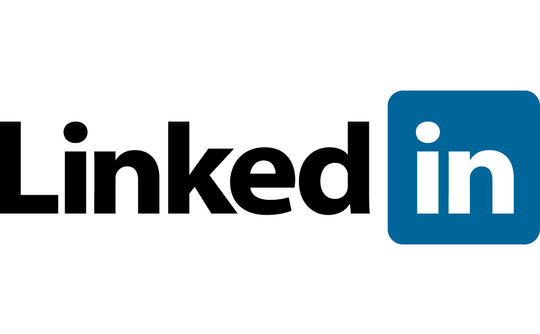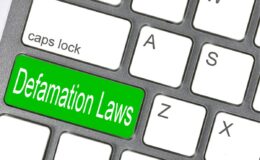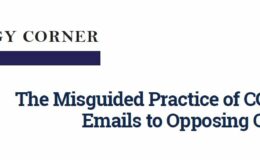LinkedIn Profiles – What Should New York and Florida Lawyers Do?
- By : Cbh
- Category : Ethics, Social Media

According to a recent study, 42% of Florida lawyers used LinkedIn for professional purposes. An ABA study suggests 90% of firms of all size have a LinkedIn profile.
Two helpful but conflicting ethics opinions regarding lawyers’ use of LinkedIn have come from the New York City Bar (“NYC Bar”) and the New York County Lawyers Association (“NY County”).
Most recently, in December 2015, the NYC Bar issued Formal Ethics Opinion 2015-7, Application of Attorney Advertising Rules on LinkedIn, and concluded that a lawyer’s LinkedIn profile or posts were an advertisement if all five (5) criteria are met:
- communication by or on behalf of the lawyer
- primary purpose is to attract new, paying clients
- communication relates to legal services which the lawyer offers
- its intended to be seen by potential new clients
- no exception applies
In March 2015, the New York County Lawyers Association issued a professional ethics Formal Opinion 748 which describes, under New York standards, what lawyers can post as their LinkedIn bios which may, or may not, be advertising (and what to do about it). The 6-page opinion is here.
Briefly, here are the highlights:
- A bio containing only your name, education, and current / past employment is NOT advertising
- Bios which include description of areas of practice, skills or endorsements MAY be advertising
- Use of LinkedIn’s “skills” and “endorsement” labels is not a violation of the “specialist” rule
- Lawyers shall ensure everything is truthful and not misleading, including third party endorsements
Most LinkedIn bios have some professional description beyond name, schools, and jobs. Obviously, some statements on your bio may not be advertising (e.g., some levity such as “Die hard Saints fan! Who Dat!!”). More seriously, communications to past/current clients and other lawyers are also exempt from advertising rules. But likely lawyers are going to include their area of practice, awards, speaking engagements, etc.
According to Opinion 748, lawyers with that additional information on their posts should do the following:
- Label it as “Attorney Advertising” on the first page (Rule 7.1(f))
- Include disclaimer, “Prior results do not guarantee a similar outcome” (Rule 7.1.(e)(3))
- Periodically monitor and review your content
- As always, everything needs to be truthful and not misleading
Here in Florida, there was previously a dust-up regarding whether posting information under LinkedIn’s various headings amounted to a violation of the “specialist” ethics rule. That was resolved, back in 2014, when LinkedIn re-named the headers which both sides agreeing that was sufficient to skirt the rule (the current headers are “Skills” and “Endorsements”). See the Fla Bar News article, here. A tad outdated, but this ABA article from 2013 discusses the “skills” v. “specialist” issue in detail, here.
Florida, and other jurisdictions, have slightly different standards. My colleague Joe Corsmeier over at Legal Ethics Alert Blog has a post discussing the New York rule and Florida’s analog, here.
If you are still concerned, here is my prior post explaining how to delete Skills and Endorsements until such time that you are comfortable using them, here.
Photo Credit: http://www.v3.co.uk/


